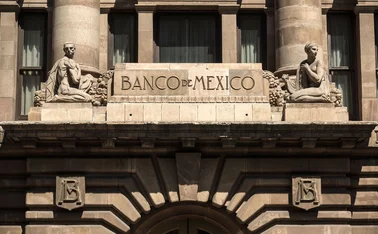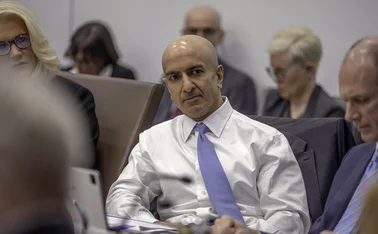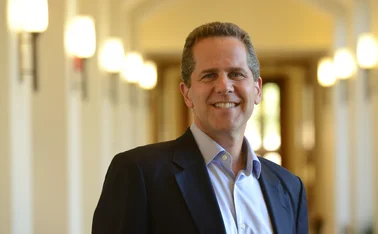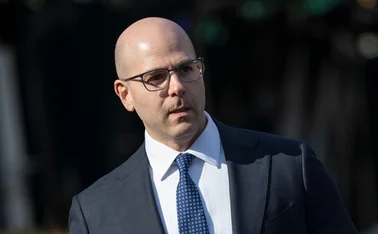
Iceland’s Guðmundsson plans post-capital controls monetary redesign
'Inflation targeting plus plus' aims to insulate Icelandic monetary policy

Iceland is currently grappling with the potential for large capital outflows, but looking ahead to the post-capital controls world, Central Bank of Iceland governor Már Guðmundsson thinks inflows could be just as dangerous.
Iceland's economy has experienced a dramatic recovery in recent years, after its crippling banking collapse in 2008. The government and central bank are still putting the finishing touches to the strategy for lifting capital controls imposed as a result of the crisis, but Guðmundsson is looking further ahead.
"We have been talking about what we call inflation targeting plus plus," he told Central Banking, speaking on the sidelines of the recent Bank for International Settlements (BIS) meetings in Basel.
Under the system, the central bank would focus on low inflation as its primary goal with interest rates as the main instruments, but would use macro-prudential measures, foreign exchange interventions and even capital flow measures as complements.
"If we face very strong inflows we will lean against them," Guðmundsson says. "We will bring some of the capital into our reserves so we are in a position to release it when the flows move out again."
On its own, this may not be sufficient, the governor notes. "We need to regulate foreign currency risk in banks' balance sheets much more tightly than before the crisis," he says. "We already have a significant part of that regulation in place."
The central bank would use macro-prudential tools to "mitigate the effects" of volatile capital flows on the financial sector. Finally, it may turn to stronger controls, including a tax applied to financial transactions – a 'Tobin tax' – higher reserve requirements, or "another tool", as yet unspecified.
No 'rules of the game'
As a small, open economy, a free-floating exchange rate may not be enough to insulate Iceland from the volatile movements of global capital, preventing monetary policy from being fully independent.
"If you have fully free capital movements you suck in capital, which has a dampening effect on monetary policy and creates a temporary and unsustainable impact on the exchange rate, which comes back to haunt you later," Guðmundsson says.
The details are still under review, he says, "but I think there is widespread support for such a policy framework among policy-makers and academics in Iceland."
The central bank would aim not to use its auxiliary powers over foreign exchange and capital controls, but would hold them ready in case of trouble.
Many countries, particularly emerging markets, have complained of the damaging effects of global capital flows, often triggered by movements in the monetary policy of advanced economies. But international co-operation has so far proved elusive.
"People are talking about 'rules of the game' for global capital flows, or reform of the international monetary system, but I am not sure that we will have any such solution in the near term," Guðmundsson says. "Countries like Iceland will have to take unilateral measures to defend themselves from these financial tsunamis."
Lifting controls
The short-term goal, however, is to lift the controls on capital that were imposed during the financial crisis, rather than impose new ones. The government recently unveiled what Guðmundsson refers to as the first two phases of the plan to lift controls – with a third and final stage still to come.
The first phase will deal with the krona assets held in the estates of the three collapsed Icelandic banks. They have the option of coming up with a "tailor-made" solution by the end of the year, otherwise they will face a 39% "stability tax", whereupon any remaining funds will be free to leave.
The estates have all already submitted plans, and Guðmundsson says the "likelihood is" the problem will be solved through "some kind of co-operative solution". The central bank is responsible for vetting the plans and giving the final go-ahead.
Phase two deals with offshore krona holdings. These individuals will have the choice of an exit auction of foreign exchange drawn from the central bank's reserves, with high rates applied, or taking a long position in the Icelandic economy and holding on to it for a lengthy period. Guðmundsson says there appears to be appetite for both.
On the current timeline the banks' estates will be dealt with by the turn of the year or the first half of 2016, while foreign exchange auctions will take place later this year.
That leaves phase three, which is still in the planning stage. Icelandic residents have been prevented from investing abroad since the crisis, and many, such as pension funds in search of returns, will want to move their money overseas when controls lift.
Phase three will gradually reverse this, but will only be implemented when the other phases are complete. Its "speed and modalities" will depend on how successful the other phases have been, and the economic conditions at the time, Guðmundsson says.
After consulting with the government, the central bank is likely to outline the final shape of its new monetary policy framework before this last phase is implemented.
Only users who have a paid subscription or are part of a corporate subscription are able to print or copy content.
To access these options, along with all other subscription benefits, please contact info@centralbanking.com or view our subscription options here: www.centralbanking.com/subscriptions
You are currently unable to print this content. Please contact info@centralbanking.com to find out more.
You are currently unable to copy this content. Please contact info@centralbanking.com to find out more.
Copyright Infopro Digital Limited. All rights reserved.
As outlined in our terms and conditions, https://www.infopro-digital.com/terms-and-conditions/subscriptions/ (point 2.4), printing is limited to a single copy.
If you would like to purchase additional rights please email info@centralbanking.com
Copyright Infopro Digital Limited. All rights reserved.
You may share this content using our article tools. As outlined in our terms and conditions, https://www.infopro-digital.com/terms-and-conditions/subscriptions/ (clause 2.4), an Authorised User may only make one copy of the materials for their own personal use. You must also comply with the restrictions in clause 2.5.
If you would like to purchase additional rights please email info@centralbanking.com








